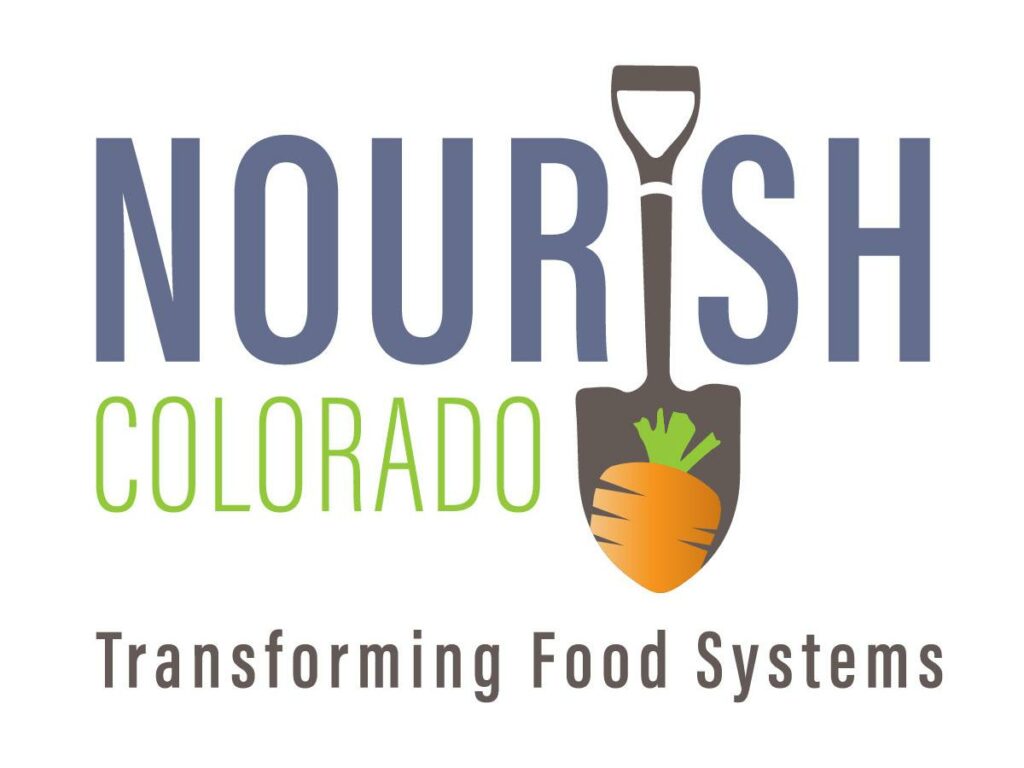Recently, Nourish Colorado invited author and speaker Katharine Manning to provide training on Empathy and Trauma in the Workplace. As an organization, we daily encounter people who have been affected by trauma and want to be equipped with the tools to handle situations that arise.
Katharine Manning defines trauma as, “A psychological injury that affects performance and well-being.” Trauma is everywhere in our culture and affects people to varying degrees. She emphasized the importance that trauma is based on a person’s experience of the event and not dependent on the severity of the circumstance. Often we categorize trauma as the most severe and egregious actions of humanity, but this often dismisses people’s pain and traumatic history. Trauma can be domestic abuse, a moment in life where you were shamed by a parent or a coach, or something that was said to you when you were a child that has defined your existence. Trauma is prolific in our culture, and we all need to be better prepared to respond to those afflicted by trauma.
She discussed 5 Steps to an empathetic response to trauma on the job she defined as the following:
- Listen
- Acknowledge
- Share
- Empower
- Return
For those that love acronyms, she used LASER to help us remember these 5 steps.
Listen | Katharine emphasized the importance of listening in response to trauma. As a culture, we are prone to the fix-it mindset that often invalidates a person’s struggle and pain. She instead offered insights on how to listen well to people who are sharing their stories. People are looking for empathetic listeners who by listening validate their pain and struggle. Our flippant fix-it mindset and interruptions are harmful to those in crisis.
One helpful tool that Katharine shared is looping. Looping is a skill that mirrors words that the person sharing is using. In other words, as an active and empathetic listener, you are demonstrating that you are listening by repeating words and phrases that they are using. This might feel small, but it is a helpful tool that makes people feel seen and heard.
Acknowledge | It’s important when someone shares with us a story of trauma that we acknowledge what they’ve shared. This can be as simple as, “Thanks for letting me know,” “It sounds like you’ve been through a lot,” or “I’m so sorry.” We should try to avoid statements that either deny the person’s experience (“I’m sure it’s not as bad as you think”) or distract from them (“My brother went through something similar. Let me tell you about him”). Even if your acknowledgment isn’t the perfect phrasing, though, it’s better to say the wrong thing than nothing at all. People need to feel seen and heard, especially when they’ve opened up about something difficult.
Share | When our lives are turned upside down, we often crave information, but unfortunately, this is the time when it’s the hardest for us to process information. We may feel like we’re experiencing brain fog, and often will forget things quickly. Katharine talked about the importance of sharing information with people in trauma, like anything we know about the incident involved, what steps have been taken, and what values the organization has as it is making decisions. She also discussed how to share information with a person in trauma: Short, clear sentences help, as does repeating yourself.
Empower | As we are supporting others, we also need to recognize our boundaries. We can’t fix anyone else’s problems–the healing journey is one they must walk themselves through. What we can do, is give them some help along the way. A great place to start is, “How can I help?” “What do you need?” It’s worthwhile to be familiar with community resources that may be useful to someone who is struggling, like domestic violence, addiction, and mental health resources (including 988, the new national suicide and mental health crisis line).
Return | This final step is a reminder to return to the person in trauma to check in later so that we can see if they need anything else and to show that we continue to be a source of support. It’s also about returning to ourselves. It can be difficult to support those in trauma, and it’s important that we practice daily self-care and lean on others for support when we need it, too.
Conclusion
Katharine shared a powerful quote with us in her presentation on empathy and trauma in the workplace.
Maya Angelou, civil rights activist, said: “I’ve learned that people will forget what you said, people will forget what you did, but people will never forget how you made them feel.”
This is a great encouragement for how we interact and deal with people who are plagued by trauma. Our desire as an organization is to handle these situations with care and empathy. We do not have all the answers, but we want to hold a posture of humility as we ask questions to those experiencing pain. We are striving to be an organization that listens, acknowledges, and validates trauma. We will embrace our limitations and share resources with those in our communities.
Finally, amid chaos and busyness, we will remember those often forgotten and unseen. We strive to be relentless in returning to those that are often marginalized and victimized by systemic trauma. This is our pledge as Nourish Colorado and we hope to invite you into the same as we apply these incredible insights from Katharine Manning. We are learning and this is the beginning of our journey in being advocates and models for an empathetic workplace that responds effectively to trauma.
To learn more about Trauma and Empathy in the workplace visits her website at https://www.katharinemanning.com
